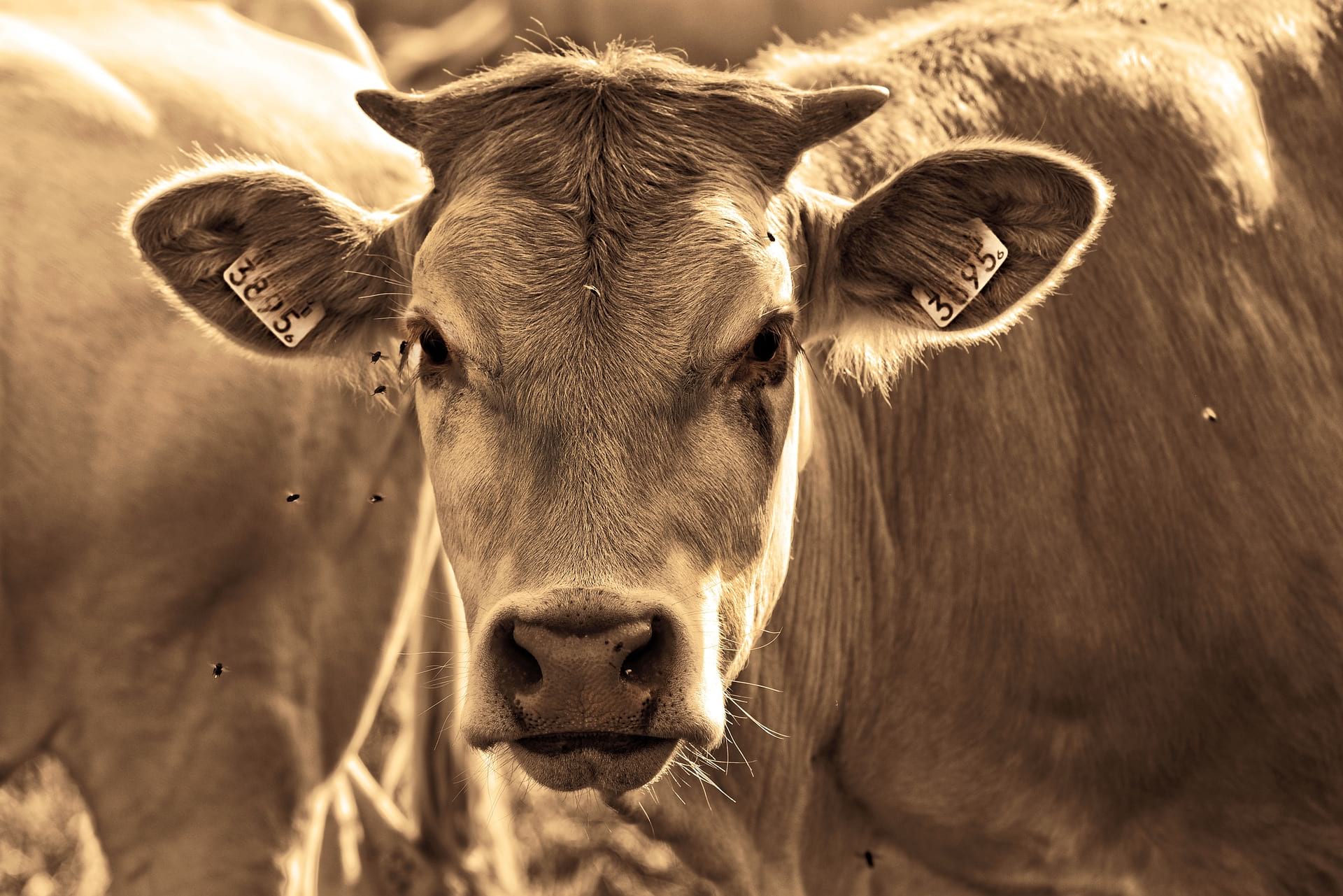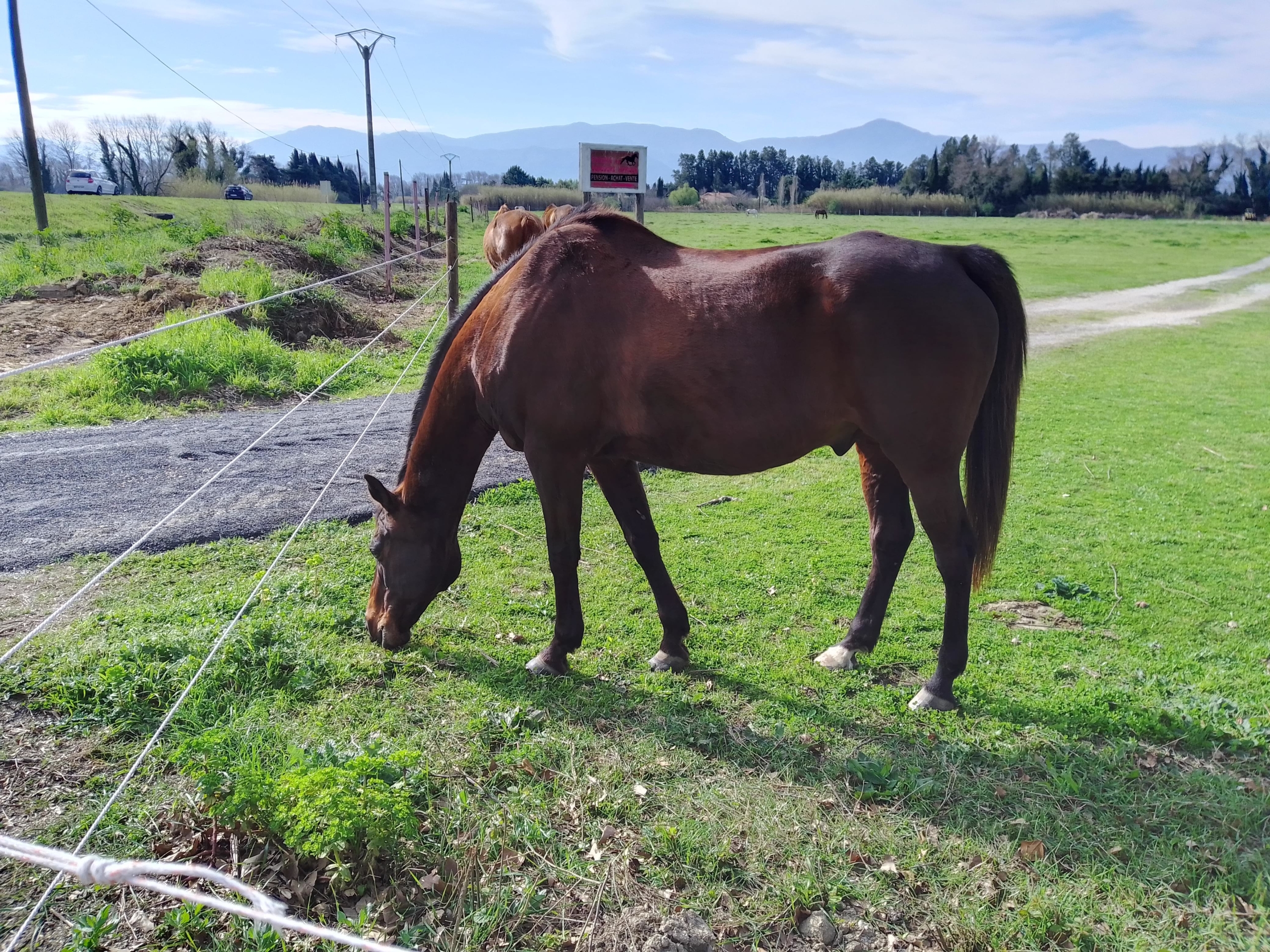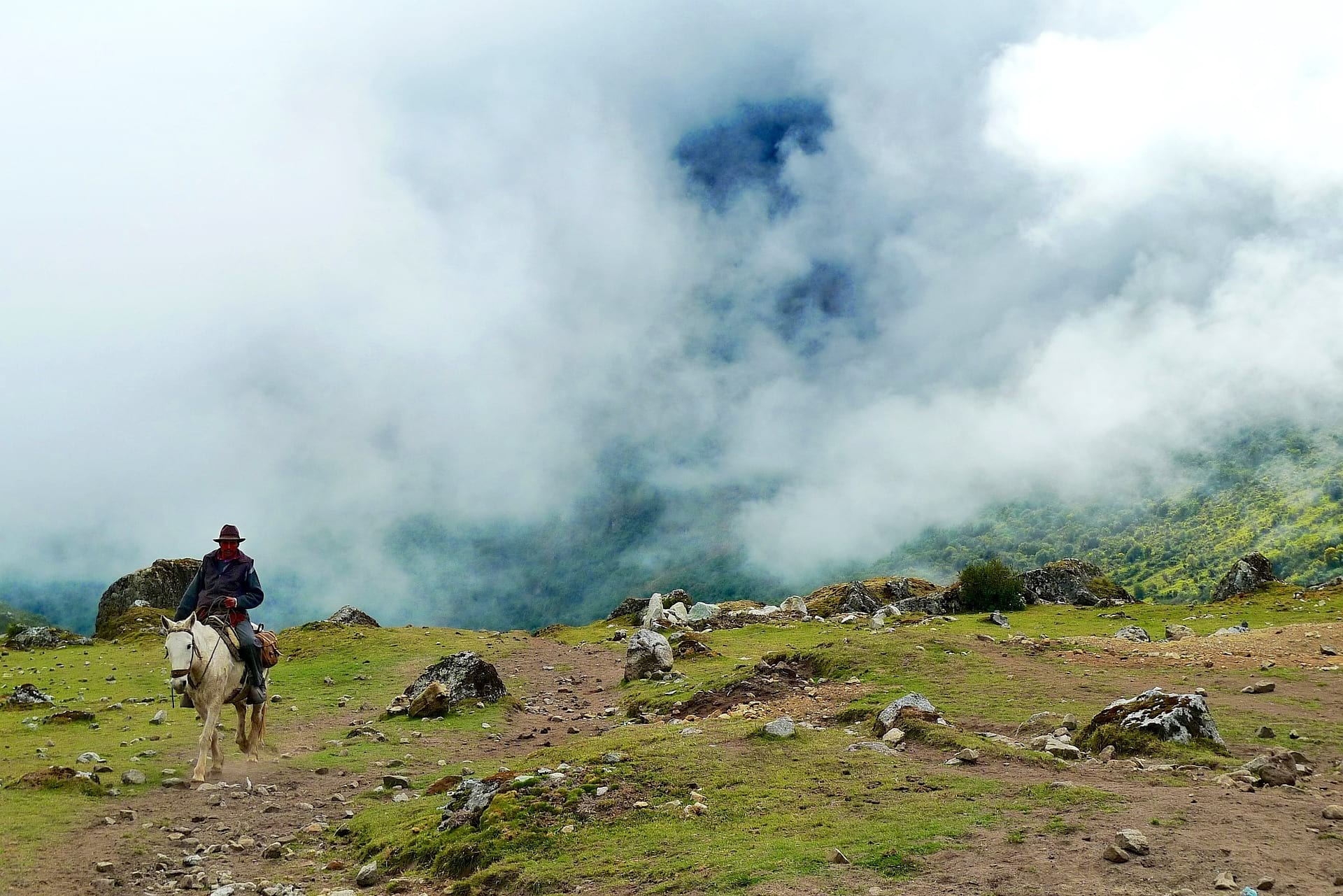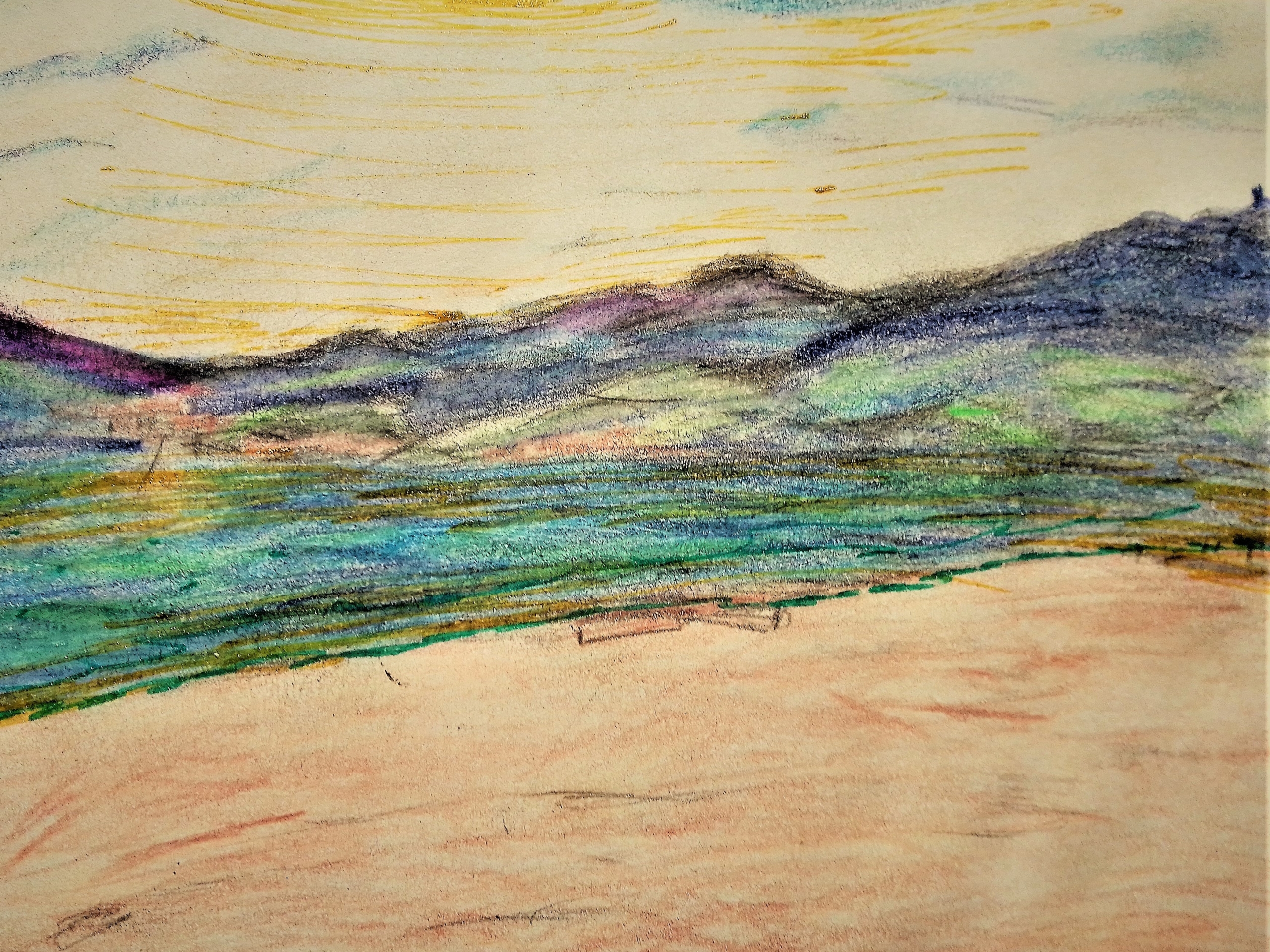The cow stands staring at me over the fence. He has the tell-tale signs of a cow of good breeding: his white-beard is neatly trimmed, and his coat is the colour of sheer grey silk. A brown stripe makes a path from his forehead to his nostrils, making him seem even more distinguished. He has the appearance of being the boss in that field. If I could guess the age of cows, I imagine him not yet a grandfather but a father of teenagers: perhaps he is the father of those copper coloured cows that are scattered about the field, each one concentrating on its own patch, chewing the cud.
We stare at each other long enough for me to put words in his mouth. I think the cow says:
“Haven’t seen you around these parts for a while? Where have you been hiding?”
He stares at me with doleful eyes.

He knows nothing of the pandemic. He knows nothing of the effect imposing limits has had on us. I only have to roll out of bed and turn on the computer, and my commute to work is over. By the time I finish at 6 pm, curfew prevents me from exiting the workplace. The kitchen table transforms back into a place for food and not the classroom and lecture theatre that it has played host to for the day.
But the cow wouldn’t know about Zoom classes.
And I go on my way.
And I stop again at “Le Petit Ranch”, where I say hi to the horses who come running up to the fence to greet me.
But they don’t recognise me. And I feel hurt. It’s my own fault, of course, I berate myself: lately, I’ve been cocooning a little more. I fell under the spell of watching Netflix, which has disrupted my schedule. This is a side-effect of the pandemic as I have never been a television viewer. It hits me at vulnerable times, just after curfew when the Goddess of boredom pays a visit and nudges me to switch on the TV. I slide myself back onto the inviting couch. I spend the evening bargaining with myself: this ends with a promise that I will only watch one more episode of whatever series has dragged me into its drama. Any discipline I have has been made redundant or has long since gone to bed. I don’t seem to be able to turn the TV off. And when I talk to my friends on Zoom and see they are all in the same trace: we talk about the series we are watching as if we are related to the characters and the events are real. I fear we are all going to be zombies.
And later that day I was out, I saw the horses that are not from the stables, the ones that look like wild horses, brown and cream pie-bald beauties. They flare their nostrils, and I believe they might gallop off perhaps to reach the height of the snow-capped peak of Mount Canigou in the background.

And I thought about a time when I was travelling in western Argentina. The only place to stay in town doubled up as an antique store, and so there was an assortment of objects for sale strewn about on the grass outside, which gave the place an interesting air. There were only two other guests, a man and woman, who didn’t know each other either. We barely introduced ourselves when the American man suggested that we hire a local gaucho to bring us horseback riding. In a crazy moment, somehow, we all agreed to this plan and went in search of a gaucho.
The gaucho’s black beret and dark beard and poncho he wore were all authentic cowboy costume in South America and made the adventure feel exciting. Suddenly our excursion turned into a road-trip for a couple of days, but with horses as our vehicles. The gaucho said he would organise for us to stay in places along the route, which meant that he knocked on random farmhouse doors when we were weary. He negotiated a deal for us to be fed and watered and given a bed in the barn for the night. A barn is a very comfortable place to stay might I mention, despite its lowly reputation: I would happily trade a few nights stay in an Airbnb for a nice barn.
In the daylight hours we sauntered along the mountain tracks; the American chap used to strike up a song at the top of his voice. Even the horses’ ears twitched as they hurt listening to his out of tune racket. The chap hadn’t a word of Spanish to communicate with the gaucho, but he used to say to us sporadically:
“I bet that gaucho thinks that I believe I can sing, but I know I haven’t a note in my head.”
And then he would laugh and say he didn’t care. Intermittently, the gaucho used to slip a hand down to his saddle pack, grab his bottle of wine, gulp it back, and then glance back at us. I remember wondering whether he felt sorry for our horses or was it us he pitied, for he had a confused look on his face whenever we joined in the chorus of one of the American’s tunes.
It was wonderful because it was spontaneous and fun just arose out of the blue, as it often does.

And so I continued under my cycle that day, and somewhere in the breeze, I knew I was finding my spirit of adventure, for it doesn’t reside at home on the couch.
I was reminded that day how lucky I am to live here in St. Cyprien where the civilised world and nature coexist. And so I resolved to combat this lethargy that has come upon me because of the time spent in this confinement. To get out of my depth, I bought a wet suit. Sometimes my ideas are not so inspired, I thought, as I regretted my purchase when I struggled with the gymnastics of getting in and out of it. My legs got tangled in the arms of it: then l wondered if I had bought the wrong size and I moaned that I was exhausted before I even put a toe in the water.
And I waded into the sea and after a few moments I felt that exhilarating feeling that made me smile. I looked up at the sun rising and resting along the water’s top; it shone diamond clusters that made a path all the way to me.
I never saw anything like that on TV.


